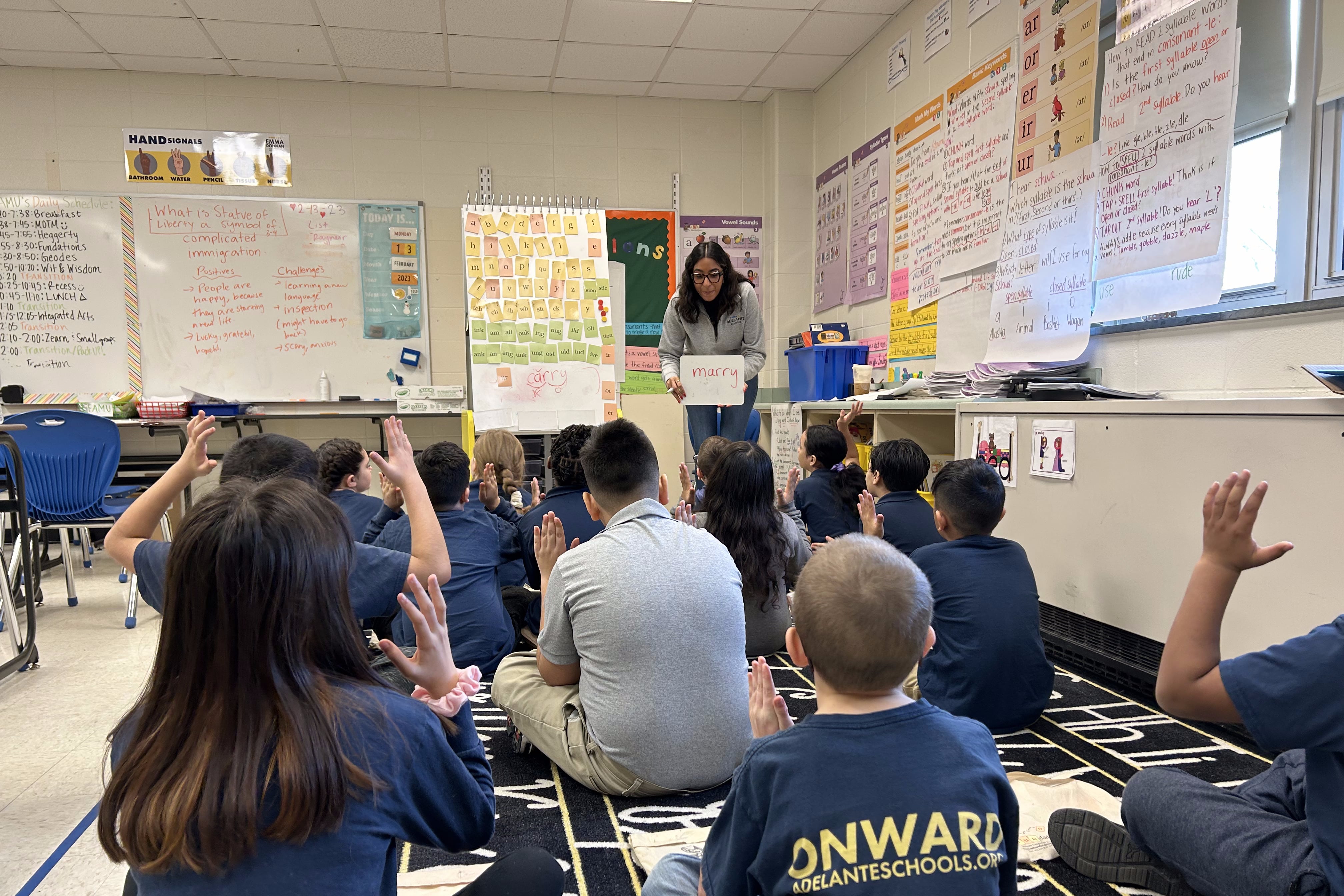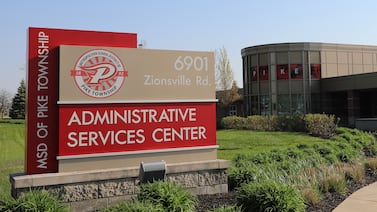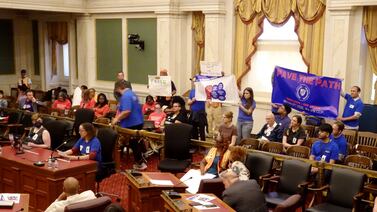Indiana’s latest ILEARN scores show that Black and Hispanic students in independent charters in Indianapolis continue to outperform their peers in Indianapolis Public Schools and the district’s own charter schools.
IPS, however, is inching along in its pandemic academic recovery with a greater share of students proficient in both subjects than in 2019, while independent charters and charters in the IPS Innovation Network as a whole have yet to recover to pre-pandemic levels.
The results for the three public school systems serving students within IPS attendance boundaries show slow growth in some areas and stagnation in others, in some cases mirroring a recent national analysis showing students experienced little to no academic progress in the 2022-23 academic year. (Chalkbeat’s analysis of independent charters included some schools that are physically outside of IPS boundaries but enroll a majority of IPS students).
IPS rates remained low: 14.8% of students scored proficient in both math and English, up slightly from 14.1% the year before, and more than 4 percentage points above 2021 scores. The most recent scores are one point higher than rates from 2019, the first time students took the exam.
The gains since 2021 have largely been driven by the district’s white students, whose proficiency rates have jumped by roughly 10 percentage points since the pandemic low in 2021 and are even higher than when students first took the ILEARN in 2019. Black and Hispanic students in IPS, however, have not recovered to pre-pandemic levels.
Charter schools within the IPS Innovation Network — a consortium of autonomous schools considered a part of IPS — collectively also increased combined English and math proficiency rates slightly from 6.7% to 6.9%.
On average, independent charters that are not affiliated with IPS slightly increased rates from 17% to 18% proficiency in both math and English. Black and Hispanic students in these schools continue to perform better than their peers in IPS. As a group, however, these schools have yet to reach pre-pandemic proficiency levels.
The results are similar to statewide rates that have also largely stalled — proficiency rates in both subjects increased from 30.2% to 30.6%.
IPS, however, is the only school district in Marion County that has exceeded 2019 rates for the percentage of students proficient in both subjects.
Superintendent Aleesia Johnson said she’s not satisfied with the outcomes, but is pleased to see continued progress.
“The fact that we stayed stable in English language arts, saw some positive movement in math, I think is a positive for us as a district given the context of the past year,” she said.
IPS mirrors statewide math gains and English losses
In IPS, proficiency rates in English dipped minutely from 22.3% to 22.2% while rates in math slightly increased from 19.5% to 21.1%.
IPS maintains a significant gap between white students on one hand and Hispanic and Black students on the other for percentages of students scoring proficient in English, math, and both subjects.
Johnson said the district has to double down on successful initiatives to drive student achievement, including tutoring programs.
This year, the district is expanding virtual tutoring during school hours to all schools that wish to participate. The district began an overhaul in curriculum in 2020.
“We have to be really urgent about the work we’re doing,” Johnson said.
Different circumstances may affect scores for school systems as a whole. For example, eight Innovation Network charter schools are chronically underperforming schools. To improve achievement, the district assigned them to a charter operator, but several still struggle.
Half of the eight so-called restart schools last spring increased the percentage of students proficient in both subjects.
Combined proficiency at Adelante Schools at Emma Donnan Elementary and Middle School dipped slightly from 12.4% to 12.2%, but the school still maintains the highest rate among restart schools. Adelante’s individual rates for English and math also declined.
Eddie Rangel, Adelante’s executive director, said the school enrolled 194 new students in the 2022-23 year. He said new students had lower proficiency rates than longer-enrolled students.
“I don’t think any of us really know what’s going on, and it is frustrating to think we can’t pinpoint one thing,” Rangel said of national reports of stagnant learning. He said Adelante is focusing on grade-level scores and improvement.
Rangel said he hopes new state standards and revised school attendance boundaries will help stability and academics.
Black, Hispanic students in independent charters perform better
Independent charters continue to show higher rates for students proficient in both English and math.
This group of schools also maintains the highest proficiency rates for Black and Hispanic students, rates that have risen the most since 2021 but have still not reached 2019 levels.
“I do think that we have enough evidence that the independent charter schools in Indianapolis for Black students in particular are making tremendously larger academic gains than what we’re seeing for other schools,” said Brandon Brown, CEO of the Mind Trust nonprofit that helps incubate charter schools in Indianapolis. “The question is ‘What are the conditions that are driving those gains?’”
Amelia Pak-Harvey covers Indianapolis and Marion County schools for Chalkbeat Indiana. Contact Amelia at apak-harvey@chalkbeat.org.








